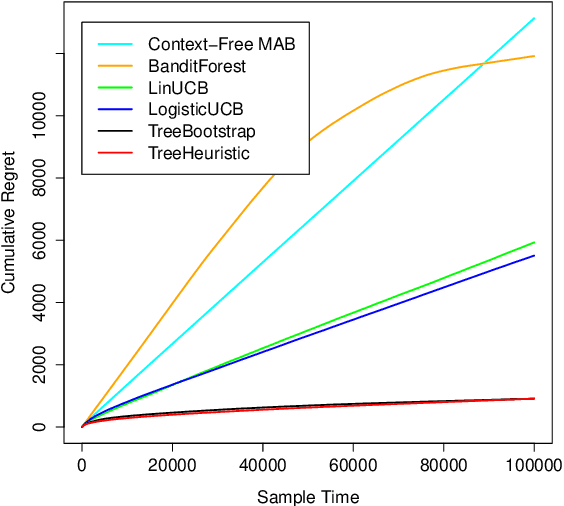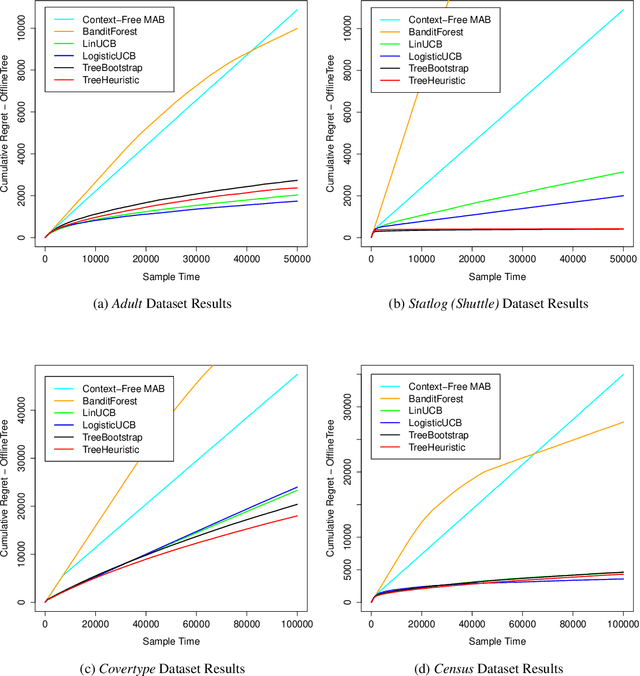Sechan Oh
A Practical Method for Solving Contextual Bandit Problems Using Decision Trees
Oct 19, 2018



Abstract:Many efficient algorithms with strong theoretical guarantees have been proposed for the contextual multi-armed bandit problem. However, applying these algorithms in practice can be difficult because they require domain expertise to build appropriate features and to tune their parameters. We propose a new method for the contextual bandit problem that is simple, practical, and can be applied with little or no domain expertise. Our algorithm relies on decision trees to model the context-reward relationship. Decision trees are non-parametric, interpretable, and work well without hand-crafted features. To guide the exploration-exploitation trade-off, we use a bootstrapping approach which abstracts Thompson sampling to non-Bayesian settings. We also discuss several computational heuristics and demonstrate the performance of our method on several datasets.
Building an Interpretable Recommender via Loss-Preserving Transformation
Jun 19, 2016

Abstract:We propose a method for building an interpretable recommender system for personalizing online content and promotions. Historical data available for the system consists of customer features, provided content (promotions), and user responses. Unlike in a standard multi-class classification setting, misclassification costs depend on both recommended actions and customers. Our method transforms such a data set to a new set which can be used with standard interpretable multi-class classification algorithms. The transformation has the desirable property that minimizing the standard misclassification penalty in this new space is equivalent to minimizing the custom cost function.
 Add to Chrome
Add to Chrome Add to Firefox
Add to Firefox Add to Edge
Add to Edge